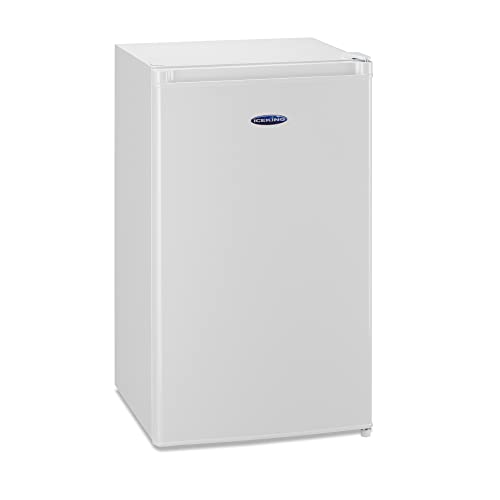How To Solve Issues Related To Fridges

Understanding Refrigerators: A Comprehensive Guide
Refrigerators, often referred to as fridges, are essential home appliances in modern homes and business establishments. They play a crucial role in protecting food and beverages, guaranteeing they remain fresh and safe for consumption. Throughout the years, developments in technology have transformed the humble fridge into a sophisticated device that comes geared up with numerous functions and functionalities. In this short article, we will check out the different types of refrigerators, key features to think about when acquiring one, and maintenance pointers to extend its life-span.
Types of Refrigerators
When it pertains to fridges, there is a wide variety of alternatives readily available in the market. Fridges Cheapest accommodates various requirements and preferences, making it important for consumers to understand their characteristics. Below is a summary of the main types of refrigerators:
| Type | Description | Pros | Cons |
|---|---|---|---|
| Top-Freezer | A standard design with a freezer compartment above the refrigerator area. | Economical, familiar design | Restricted storage area for fresh food |
| Bottom-Freezer | Functions a freezer compartment situated at the bottom for easier access to fresh food. | Ergonomic design, more fresh food space | Freezer may need bending to access |
| Side-by-Side | Split vertically, with the freezer on one side and the refrigerator on the other. | Convenient access to products, adequate storage space | Narrow storage bins |
| French Door | Combines a bottom freezer with double doors for the refrigerator area, using flexibility. | Elegant style, easy access to foods | Greater price point |
| Compact Fridge | Smaller sized systems designed for restricted areas such as dormitory or offices. | Space-efficient, portable | Restricted storage capacity |
| Smart Fridge | Geared up with Wi-Fi connection and touch screens, allowing users to manage groceries digitally. | Modern functions, energy-efficient | Expensive and may need updates |
Key Features to Consider
When purchasing a refrigerator, it's necessary to evaluate certain functions to guarantee it meets your requirements. Here are crucial elements to consider:
Size and Capacity
- Make sure the fridge fits your kitchen area area.
- Consider the total capability based upon your family requires.
Energy Efficiency
- Search For ENERGY STAR ratings to guarantee energy efficiency, which can save on electricity costs.
Cooling Technology
- Examine if the fridge utilizes conventional cooling, double cooling, or advanced technologies like inverter compressors for better performance.
Storage Options
- Examine shelving flexibilities, crisper drawers, and adjustable compartments for efficient storage and organization.
Complete and Design
- Select a finish (stainless steel, matte, etc) that complements your cooking area design. Remember to think about the total style, whether smooth or conventional.
Smart Features
- Think about clever fridges if you want functions like temperature level control through an app, stock tracking, and notifications when the door is exposed.
Maintenance Tips for Refrigerators
Correct maintenance can substantially extend the life of a refrigerator. Here's a list of crucial maintenance practices:
- Regular Cleaning: Keep the interior clean and devoid of spills and expired products. Regular monthly cleansing is suggested.
- Inspect Temperature Settings: Ensure the refrigerator is set between 35 ° F and 38 ° F, while the freezer should be at 0 ° F to keep food safety.
- Tidy Condenser Coils: Dust and particles can accumulate on the coils, decreasing efficiency. Cleaning them every 6 months is advisable.
- Check Door Seals: Regularly check the door gaskets for wear and tear. A good seal is important for preserving temperature.
- Thawing: In older designs, thaw the freezer regularly to avoid ice accumulation. Some modern-day fridges included auto-defrost features.
- Keep Vents Unobstructed: Ensure air flow is not blocked by products, which can restrain cooling performance.
- Monitor Food Storage: Properly store foods and avoid overloading the fridge, which can limit air flow.
Regularly Asked Questions (FAQs)
How long do refrigerators typically last?
- The majority of refrigerators last in between 10 to 15 years, depending on the model and upkeep.
What can I do to keep my fridge running efficiently?
- Regular cleansing, inspecting temperature level settings, and preserving appropriate ventilation can boost performance.
Is a wise fridge worth the investment?
- If you frequently prepare, amuse, or need sophisticated functions such as remote temperature control and stock tracking, the financial investment may be beneficial.
Can my refrigerator cause high electrical power bills?
- Ineffective designs, poor upkeep, or leaving the door open can lead to increased electrical energy consumption.
What's the distinction in between a top-freezer and a bottom-freezer design?
- A top-freezer fridge has a freezer area above the fridge, while a bottom-freezer design has a freezer drawer at the bottom for ease of access to fresh food.
Refrigerators are essential in modern cooking areas, serving not just as storage for perishables but also showing improvements in technology and benefit. With the myriad alternatives available, comprehending the types, features, and maintenance can empower customers to make educated decisions. Correct care can make sure that a fridge remains efficient and functional for several years, ultimately boosting the overall food storage experience in the home. Whether selecting a trendy French door model or a compact fridge for a studio apartment, customers today are equipped with the knowledge to select the ideal home appliance for their needs.

